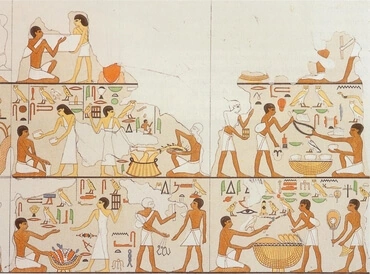1
Ovo su imena Izraelovih sinova koji su s Jakovom sišli u Egipat, svaki sa svojim domom:
3
Jisakar, Zebulun i Benjamin;
5
U svemu Jakovljevih potomaka bijaše sedamdeset duša. A Josip je već bio u Egiptu.
6
I umre Josip, a pomru i sva njegova braća i sav onaj naraštaj.
7
Ali su Izraelci bili rodni, namnožili se i silno ojačali, tako da su napučili zemlju.
8
Uto u Egiptu zavlada novi kralj koji nije poznavao Josipa.
9
I reče on svome puku: "Eto, sinovi su Izraelovi postali narod brojan i moćniji od nas.
10
Hajde, postupimo mudro s njima: spriječimo im porast, da se u slučaju rata ne pridruže našim neprijateljima, da ne udare na nas i napokon ne odu iz zemlje."
11
I postaviše nad njima nadglednike da ih tlače teškim radovima. Tako su faraonu sagradili gradove-skladišta: Pitom i Ramses.
12
Ali što su ih više tlačili, oni se još više množili, napredovali i širili se, tako da su Egipćani strahovali od Izraelaca.
13
I Egipćani se okrutno obore na Izraelce.
14
Ogorčavali su im život teškim radovima: pravljenjem meljte i opeke, različitim poljskim poslovima i svakovrsnim naporima koje im nemilosrdno nametahu.
15
Egipatski se kralj obrati i na hebrejske babice, od kojih jednoj bijaše ime Šifra, a drugoj Pua, pa im naredi:
16
"Kad u porodu pomažete Hebrejkama, dobro pogledajte oba kamena sjedala: ako je muško dijete, ubijte ga; ako je žensko, neka živi.
17
Ali su se babice bojale Boga i nisu činile kako im je naredio egipatski kralj, nego su ostavljale na životu mušku djecu.
18
Stoga egipatski kralj pozove babice pa im rekne: "Zašto ste tako radile i na životu ostavljale mušku djecu?"
19
Nato babice odgovore faraonu: "Hebrejke nisu kao egipatske žene. One su životne. Prije nego babica dođe k njima, one već rode."
20
Bog je to babicama za dobro primio. Narod se množio i silno porastao.
21
A kako su se babice bojale Boga, on ih obdari potomstvom.
22
Onda faraon izda naredbu svemu svome narodu: "Svako muško dijete koje se rodi Hebrejima bacite u Rijeku! Na životu ostavite samo žensku djecu."







